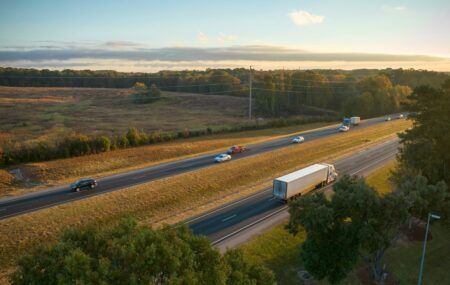The UK government has announced that a further 22 connected and autonomous vehicle (CAV) R&D projects will share funding to boost the country’s leadership in disruptive technologies and services that have the potential to shape the future of transport.
The new £22.4m (US$31.3m) investment will bring the total number of government funded R&D projects in self-driving vehicles to 73, in a portfolio worth around £180m (US$252m), with over £120m (US$168m) of government grants.
A central part of the government’s Industrial Strategy, the successful projects in the latest round of CAV funding include the development of off-road autonomous technology that will look to improve productivity in industries such as mining and construction.
UK Minister for Business and Industry Richard Harrington announced a total of 22 projects that will be supported through the new finance, including projects from sector-leading companies such as Jaguar Land Rover and Caterpillar. The funding is a central part of the government’s Future of Mobility Grand Challenge that includes a commitment to have fully self-driving vehicles on UK roads by 2021.
The new government funding will be used on projects to develop technology that will allow self-driving vehicles to function in situations where weather visibility is so poor human drivers would struggle to navigate, while other projects will look to trial autonomous Mobility-as-a-Service (MaaS) services in London, Cambridge, and Didcot.
Another project will look into solving drivers’ parking problems, with a consortium led by Parkopedia Limited using their funding to develop autonomous valet parking systems (AVP) that will allow drivers to leave their car at their final destination, with the vehicle parking itself. The T-CABS project will use its funding to build a fleet of 15-seat pods and use them to demonstrate a fare paying public transport service in Cambridge.
The government will be launching further competitions later this year worth up to £45m (US$63m) in total. This includes the second CAV testing infrastructure competition with Meridian, the UK’s CAV coordination hub, and a further CAV R&D competition.
“Through these competitions, we are offering innovative businesses support to take their projects to the next level and help them achieve commercial success,” explained Harrington. “The projects that we are nurturing mean that we are a step closer to securing our place as a world leader in self-driving vehicles.”
Innovate UK’s chief executive, Ruth McKernan, commented, “The quality and commercial potential of these successful projects demonstrate how UK businesses are developing pioneering connected and autonomous vehicle technologies. The impact will benefit our thriving automotive industry, and the economy as a whole.”




